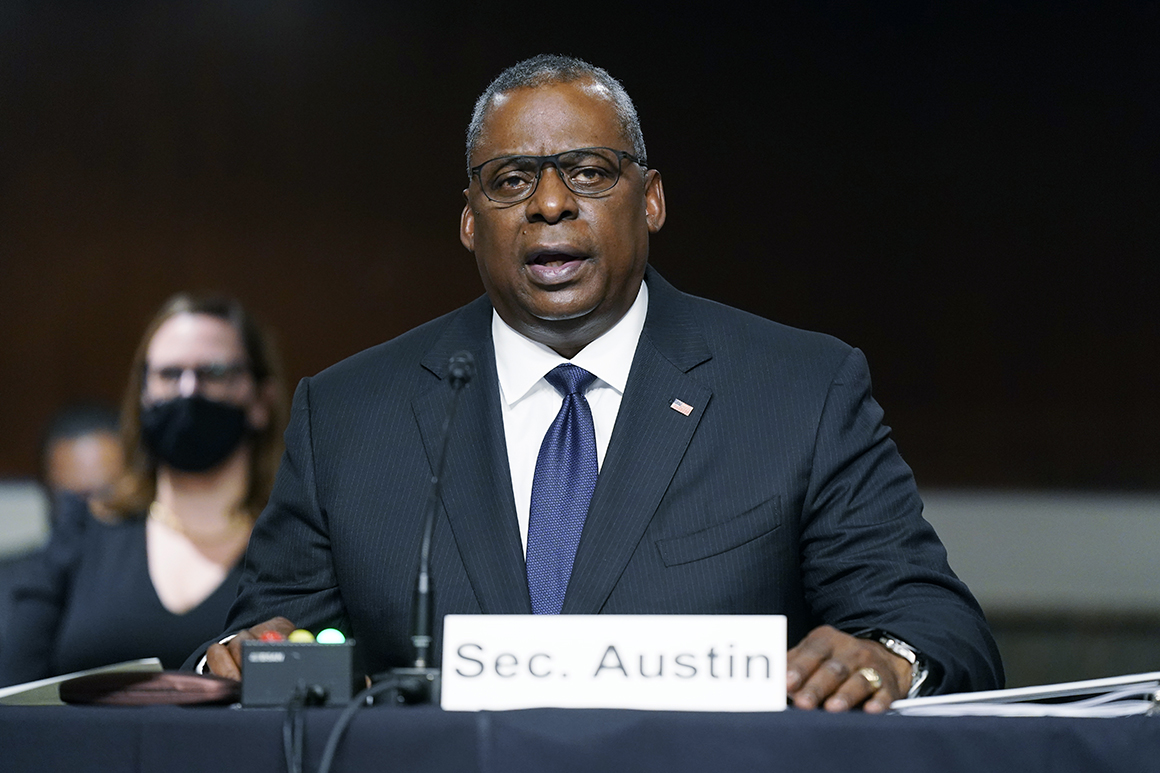
As the Taliban advanced on Kabul on Aug. 12, President Joe Biden’s top national security advisers decided it was time to bail out.
Given the rapidly deteriorating security situation, the U.S. would shutter the embassy in Kabul by Aug. 31, they decided, instead of keeping staff there after the military was gone, two senior State Department officials said.
Now, the timing of that evacuation is at the heart of an intensifying dispute between administration officials about exactly who recommended what — and when. Pentagon officials say they urged the State Department to begin the evacuation sooner, while diplomats counter that defense officials never objected to their timeline. As lawmakers try to sort out why the withdrawal turned so chaotic, the sniping between agencies has implications for Biden’s presidency that go well beyond an effort to clarify the historical record.
The decision on Aug. 12 was in keeping with a recommendation earlier this spring from Gen. Scott Miller, then-commander of U.S. forces in Afghanistan, to close the embassy by the time the troops departed, according to three people with knowledge of the discussion. At the time, Miller’s advice was dismissed.
But on that fateful Thursday in August, officials had even less time than they thought. Just three days later, the Taliban seized Kabul and the U.S. shuttered the embassy, burning sensitive documents and shuttling staffers to the relative safety of Hamid Karzai International Airport on the outskirts of the city.
The dramatic sequence of events kicked off a scramble to evacuate all the remaining U.S. Embassy personnel, as well as tens of thousands of other American citizens and at-risk Afghans, before the deadline for the American military to withdraw.
In a closed session with senators on Tuesday, Gen. Mark Milley, the chair of the Joint Chiefs of Staff, reportedly blamed the State Department in blunt comments, saying officials “waited too long” to order the operation, according to Axios.
But two senior State Department officials told POLITICO on Wednesday that Milley never pushed for an earlier evacuation in the days before Kabul fell.
On Aug. 6, senior leaders from the Pentagon, State Department, National Security Council, the intelligence community and U.S. Central Command gathered for a table-top exercise to go over plans for a possible non-combatant evacuation, or NEO, the State Department officials said. No military representative there objected to the plan, which involved keeping embassy staffers on the ground past the military withdrawal, they said.
“Nobody at that meeting said ‘it’s time to pull the trigger on the NEO,’” one of the officials said. Neither did Milley propose a faster evacuation in subsequent meetings about Afghanistan, the other State official added.
But months prior, even before Biden announced the full withdrawal in April, Miller had recommended that the State Department evacuate their personnel by the time the American military left the country. He argued that his forces could not defend the embassy without continuing to support the Afghan army.
A spokesperson for Milley declined to comment.
During a hearing on Wednesday, Defense Secretary Lloyd Austin said the Pentagon “would have liked to see” a faster evacuation, and DoD officials relayed that message to their State Department colleagues. But he allowed that it was ultimately a State Department decision, and they were balancing a number of competing interests.
“We provided our input, and we certainly would have liked to see it go faster, or sooner,” Austin said. “But again, they had a number of things to think through as well.”
The Pentagon understood that the State Department was concerned that moving too quickly would erode confidence in the Afghan government, a defense official said. But behind the scenes, Austin did urge the State Department to carry out the evacuation faster than the original timeline called for.
“He absolutely made clear to the State Department that we needed to evacuate the embassy faster than the original plan,” the defense official said.
The blame game is unlikely to end soon, as Republican lawmakers ramp up their criticism of the withdrawal and blame Biden for what they described as a debacle.
“The reason all of those Americans, our fellow citizens, got left behind, it is because Joe Biden waited too long to order an evacuation. He didn’t have the guts to order an evacuation when there needed to be one. He allowed our military to draw down to zero with American civilians all still there and when they needed to be evacuated, he wouldn’t do it, he was worried about how it would look, and now here we are, Americans are left behind, he has abandoned them, 13 soldiers are dead. That is Joe Biden’s record,” said Sen. Josh Hawley (R-Mo.) on Fox News after the hearing on Tuesday.
----------------------------------------
By: Lara Seligman
Title: State Department, Pentagon trade blame over Afghanistan evac
Sourced From: www.politico.com/news/2021/09/30/state-department-pentagon-trade-blame-over-afghanistan-evacuation-514783
Published Date: Thu, 30 Sep 2021 09:27:30 EST
Did you miss our previous article...
https://consumernewsnetwork.com/politics-us/education-dynamics-falsely-sells-nonprofit-colleges-as-forprofit






